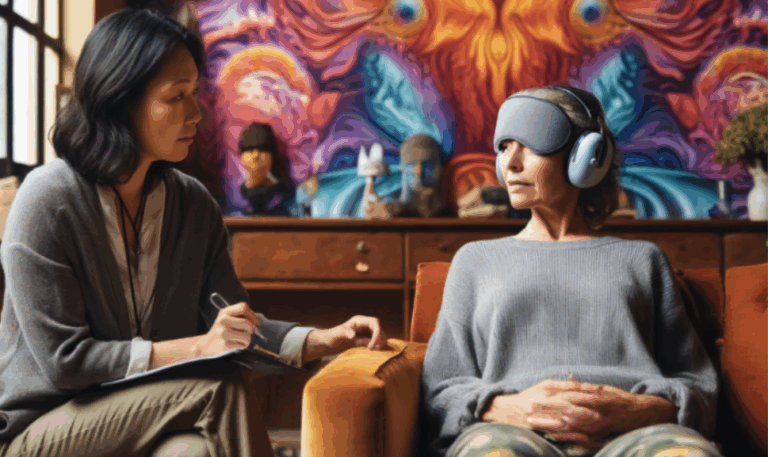In a groundbreaking development that may reshape the future of mental health treatment in oncology, researchers have found that a single dose of psilocybin—the psychedelic compound found in so-called “magic mushrooms”—can provide profound and lasting relief from depression in cancer patients. According to a recent study inspired by earlier clinical trials and published insights, the beneficial effects can persist for as long as two years following just one guided session.
This revelation is gaining traction in scientific and medical communities, challenging conventional pharmacological approaches to depression and offering new hope to patients dealing with the emotional toll of life-threatening illness.
A Radical Departure from Traditional Treatment
For decades, the emotional well-being of cancer patients has largely been managed through talk therapy, antidepressants, and other pharmaceutical interventions. While effective for some, these treatments often come with a lengthy adjustment period, side effects, or limited efficacy—especially in patients facing existential distress tied to a terminal diagnosis.
Psilocybin therapy, on the other hand, offers a distinctly different model. Administered in a controlled setting with medical professionals and psychotherapists, the psychedelic experience is not merely pharmacological but also profoundly psychological and even spiritual. During the session, patients often report confronting the nature of their illness, mortality, and identity in ways that foster lasting emotional resilience.
The Study: Design and Results
The most recent study builds on research originally conducted at institutions like Johns Hopkins University and NYU Langone Health. In these studies, participants—cancer patients experiencing clinically significant depression or anxiety—were given a single moderate-to-high dose of synthetic psilocybin under the supervision of trained professionals. Sessions lasted several hours and were preceded and followed by psychological counseling.
Researchers tracked the participants for over 24 months. Astonishingly, more than 70% of the subjects continued to show clinically significant reductions in symptoms of depression and anxiety two years after their treatment. Many also reported sustained improvements in quality of life, spiritual well-being, and life purpose.
These results are nearly unprecedented in psychiatric medicine, especially for a single-dose treatment. Most antidepressants require daily use and often lose effectiveness over time. Psilocybin’s durability in this context sets it apart as a potentially revolutionary intervention.
Understanding the Psychedelic Mechanism
Psilocybin works by binding to serotonin receptors in the brain, particularly the 5-HT2A receptor, altering perception and thought patterns. The resulting experience is often described as one of ego dissolution, where patients feel a sense of unity with the universe, deep emotional insight, or a profound sense of peace.
Neuroscientific studies using functional MRI have shown that psilocybin disrupts the brain’s default mode network, a cluster of interconnected regions associated with self-referential thought and rumination. In depression, this network tends to be hyperactive. Psilocybin’s ability to quiet this activity may explain why patients experience a psychological “reset,” gaining new perspectives on themselves and their circumstances.
Personal Stories and Human Impact
One participant in a similar trial, a retired teacher diagnosed with late-stage breast cancer, described the treatment as “a rebirth.” Prior to the session, she suffered from persistent despair, insomnia, and a sense of hopelessness. Afterward, she reported feeling a renewed appreciation for life, reduced fear of death, and emotional clarity that lasted well beyond the acute effects of the drug.
Another patient, a 56-year-old man with metastatic prostate cancer, noted that the experience allowed him to “step outside of the depression” and view his life from a broader, more compassionate perspective.
These anecdotal accounts mirror the clinical findings, painting a picture of transformation that goes beyond symptom management.
Safety, Supervision, and Ethical Considerations
Despite its powerful effects, psilocybin is not without risk. Experts caution that the psychedelic experience can be intense and emotionally overwhelming, particularly in patients already grappling with existential fear. That is why professional supervision is critical. Sessions are conducted in quiet, supportive environments, with therapists guiding patients through their journey.
Moreover, psilocybin remains a Schedule I controlled substance in many parts of the world, including the United States, which limits accessibility and research opportunities. However, growing advocacy and promising clinical results have led to a shift in regulatory attitudes. Several U.S. states and cities have decriminalized psilocybin, and the Food and Drug Administration (FDA) has granted it “breakthrough therapy” status for treatment-resistant depression.
Future Implications for Palliative Care and Psychiatry
The implications of psilocybin therapy go far beyond cancer patients. Experts suggest that this approach may eventually be integrated into broader psychiatric care, especially for those with treatment-resistant mood disorders. For now, its role in palliative care is perhaps most impactful, offering patients facing terminal illness a path to emotional peace and existential resolution.
Some medical institutions are beginning to develop frameworks for legal, ethical, and therapeutic integration of psychedelics into care models. This includes training mental health professionals to safely facilitate and interpret psychedelic experiences.
If current trends continue, we may witness a paradigm shift in how mental health—especially the mental health of the chronically and terminally ill—is understood and treated.
Conclusion
The use of psilocybin to treat depression in cancer patients represents one of the most promising developments in psychiatric and palliative medicine in recent years. A single guided session has the power to alleviate deep psychological suffering for months or even years, a claim few current treatments can make.
While more research is necessary to fully understand the long-term implications and to ensure safe, ethical delivery, this psychedelic therapy offers a rare combination of efficacy, efficiency, and profound emotional insight. For cancer patients wrestling with despair, it may be more than medicine—it may be a path toward peace.






